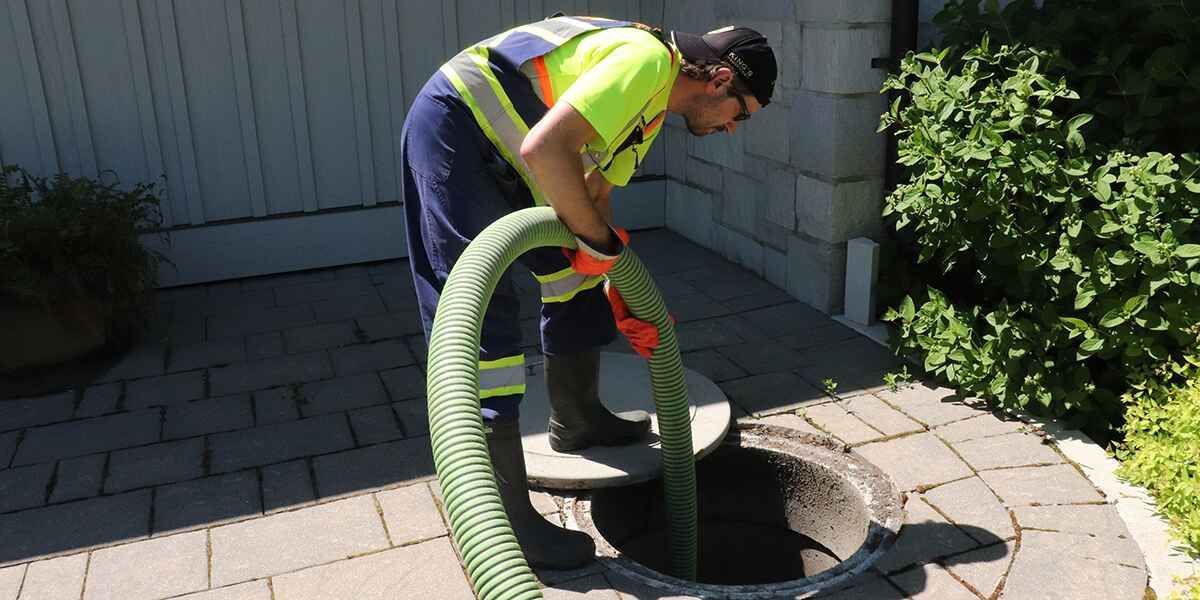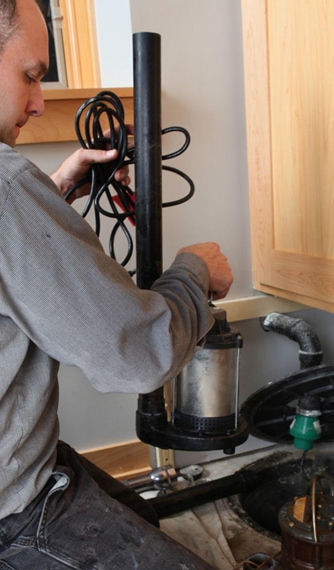Almost everyone has got their unique ideas on the subject of How To Effectively Clean A Sump Pump.

Sump pumps are critical components in lots of homes, specifically in areas vulnerable to flooding or excessive moisture. They assist stop water damage by effectively removing excess water from basements or crawl spaces. Nevertheless, like any other home appliance, sump pumps need routine upkeep to ensure they function effectively when required one of the most. Cleansing your sump pump is a vital part of its upkeep, and understanding just how to do it appropriately can conserve you from costly repair services and prospective catastrophes.
Intro
Preserving a clean sump pump is crucial for its correct functioning and longevity. Disregarding this necessary job can result in clogs, malfunctions, and inevitably, water damage to your residential or commercial property. For that reason, finding out just how to clean a sump pump is important for house owners that count on these devices to maintain their basements dry and secured.
Comprehending the Sump Pump
Prior to diving right into the cleaning process, it's essential to have a fundamental understanding of how a sump pump works. Commonly set up in a pit or basin below the cellar floor, a sump pump includes a number of crucial elements, consisting of a pump, a float switch, and a discharge pipeline. When water builds up in the pit, the float button turns on the pump, which after that pumps the water out with the discharge pipeline, away from the building's structure.
Signs of a Dirty Sump Pump
Recognizing when your sump pump needs cleansing is essential for protecting against possible malfunctions. Some typical indications that show an unclean sump pump include unusual sounds during operation, reduced water circulation, and visible particles in the pit. If you discover any one of these signs, it's vital to clean your sump pump immediately to prevent any kind of additional problems.
Preparing for Cleansing
Before you start cleansing your sump pump, it's essential to take some safety and security precautions. Beginning by turning off the power to the pump to stay clear of any kind of electrical accidents. In addition, use ideal protective gear, such as handwear covers and goggles, to secure yourself from dirt, particles, and potential virus.
Detailed Overview to Cleaning a Sump Pump
Shutting down the Power
Begin by detaching the power supply to the sump pump to prevent any type of crashes while cleansing.
Getting Rid Of Particles and Dirt
Make use of a container or an inside story to eliminate any type of noticeable particles, dirt, or sediment from the sump pit. Dispose of the debris properly to prevent it from clogging the pump or the discharge pipe.
Cleaning the Pump and Float Change
When the pit is free from particles, thoroughly get rid of the pump from the pit. Check the pump and the float button for any kind of signs of damage or wear. Utilize a soft brush or towel to cleanse the surface areas and eliminate any kind of collected gunk.
Purging the System
After cleansing the pump and float button, purge the sump pit with clean water to remove any type of continuing to be dust or debris. This will aid ensure that the pump operates smoothly and efficiently.
Looking For Appropriate Performance
Prior to reinstalling the pump, do a quick examination to ensure that the float switch triggers the pump appropriately. Pour some water right into the sump pit and observe the pump's operation. If every little thing is working correctly, you can reassemble the pump and reconnect the power supply.
Maintenance Tips to Maintain Your Sump Pump Clean
In addition to routine cleansing, there are a number of upkeep tips you can follow to maintain your sump pump in ideal problem:
Verdict
Cleaning your sump pump is an important facet of its upkeep and makes certain that it runs efficiently when you require it one of the most. By complying with the steps detailed in this guide and integrating routine maintenance into your routine, you can expand the lifespan of your sump pump and secure your home from water damage.
6 STEPS ON HOW TO CLEAN A SUMP PUMP PROPERLY
UNDERSTANDING SUMP PUMPS
Your sump pump plays a crucial role in protecting your home by managing and removing excess water. It primarily functions as a “shield”, guarding your basement against the damaging effects of water accumulation. The pump is housed in a sump pit in the lowest part of your basement, and its job is to pump out any water that collects there.
During heavy rainfalls or when snow melts rapidly, water can infiltrate your basement, posing potential risks like flooding, structural damage, and harmful mold growth. Here, the sump pump springs into action, pumping out the intruding water and directing it away from your home.
SAFETY FIRST
Before cleaning, remember to prioritize safety. Disconnect the sump pump from the power source to prevent any accidental electric shocks. Also, wear sturdy gloves to protect your hands from any sharp or dirty components within the pump.
REMOVE THE SUMP PUMP
After ensuring your safety, the next step is to remove the sump pump from its pit. Doing this might require careful maneuvering as you don’t want to damage any pump components. Once removed, clean the sump pit to remove any accumulated debris or sludge.
INSPECT THE PUMP
Inspect the pump for any visible signs of wear or damage. Check the power cord, float switch, and impeller housing. If any components look worn out or damaged, consider replacing them to ensure optimal performance.
CLEAN THE PUMP
Thoroughly clean the pump with warm, soapy water. Make sure to rid it of any dirt, gravel, or other debris that might impede its performance. You can use a toothbrush to clean the small, hard-to-reach parts of the pump.
REINSTALL THE SUMP PUMP
Reinstall the pump into the sump pit Make sure it’s positioned correctly to remove the water effectively Once it’s back in place, reconnect it to the power source TEST THE PUMP
Finally, pour some water into the pit to ensure the pump works correctly. It should start automatically and begin pumping out the water; if it doesn’t, check the power source and the positioning of the pump.
Remember, while cleaning your sump pump is an essential part of home maintenance, hiring a professional plumber for a thorough inspection and cleaning at least once a year is also important. This will ensure that your pump is in optimal condition, ready to protect your home from potential water damage.
BEST PRACTICES FOR CLEANING SUMP PUMP DISCHARGE PIPES
Regular Inspection: Regularly inspect your discharge pipes, especially during heavy rainfall or snowmelt periods. Look for any signs of blockage or damage. Early detection of problems can prevent serious issues down the line. Periodic Cleaning: Over time, sediment and debris can accumulate in the discharge pipes, impeding the flow of water. Regular cleaning helps keep the pipes clear and functioning efficiently. You can use a high-pressure water jet to effectively clean the pipes. Insulation During Winter: In colder climates, discharge pipes can freeze, blocking the outflow of water. Protect your discharge pipes from freezing temperatures by insulating them with foam pipe insulation. This will ensure the sump pump can continue to discharge water even in freezing conditions. Proper Positioning: The discharge pipe should be positioned to direct water away from your home’s foundation. Improper positioning can lead to water seeping back into the basement. Ensure the pipe is long enough and angled correctly. Installation of a Check Valve: A check valve prevents water from flowing back into your sump pit after the pump has pushed it out. Installing a check valve helps maintain the efficiency of your sump pump and reduces the risk of flooding. Minimize Pipe Turns: Every curve or turn in the discharge pipe can decrease the efficiency of water flow. By minimizing turns and bends in your discharge pipe, you can increase the efficiency of your sump pump. https://www.fullspeedplumbing.com/how-to-clean-a-sump-pump-properly9999/

Hopefully you enjoyed our post about . Thanks so much for taking time to read through our content. Do you know about anybody else who is inquisitive about the topic? Be sure promote it. We thank you for your readership.
Schedule